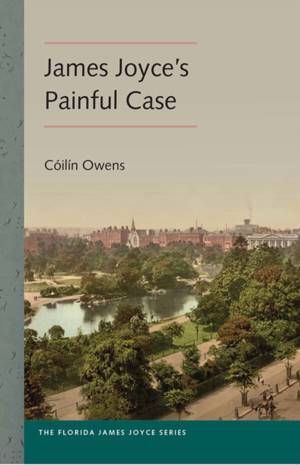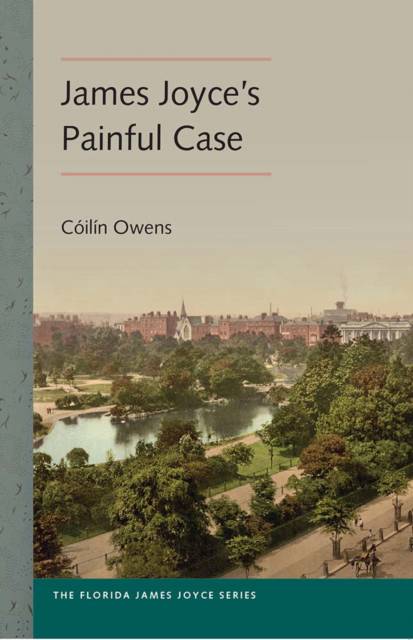
Je cadeautjes zeker op tijd in huis hebben voor de feestdagen? Kom langs in onze winkels en vind het perfecte geschenk!
- Afhalen na 1 uur in een winkel met voorraad
- Gratis thuislevering in België vanaf € 30
- Ruim aanbod met 7 miljoen producten
Je cadeautjes zeker op tijd in huis hebben voor de feestdagen? Kom langs in onze winkels en vind het perfecte geschenk!
- Afhalen na 1 uur in een winkel met voorraad
- Gratis thuislevering in België vanaf € 30
- Ruim aanbod met 7 miljoen producten
Zoeken
€ 38,45
+ 76 punten
Omschrijving
"An eminently insightful and informative study of a single story, as well as a profound exploration of Joyce's position within his own historical moment and its most urgent philosophical and religious questions."--James Joyce Quarterly "One of the more intellectually capacious, wide-ranging studies on Joyce and his work to emerge in some time. . . . Owens's book is among the finest studies of Dubliners ever written as well as among the best--most provocative, revealing, and useful--critical works on Joyce to be published in some time."--Philological Quarterly "While Owens has captured the breadth of subjects that a casebook would offer, he balances his readings with a great deal of focused and specific close reading. . . . This book is an excellent companion for reading 'A Painful Case' and would be essential reading for anyone engaging in an in-depth study of Dubliners."--James Joyce Literary Supplement "Inspires awe, admiration, and wonder. . . . There is something new for every Joyce student and scholar to learn from Owens's thorough research."--English Literature in Transition, 1880-1920 In order to demonstrate that one story from the Dubliners is not only a turning point in that book but also a microcosm of a wide range of important Joycean influences and preoccupations, Cóilín Owens examines the dense intertextuality of "A Painful Case." Assuming the position of the ideal contemporary Irish reader that Joyce might have anticipated, Owens argues that the main character, James Duffy, is a "spoiled priest," emotionally arrested by his guilt at having rejected the call to the priesthood. Duffy's intellectual life thereafter progresses through German idealism to eventual nihilism. The contrast of nihilist thought and Christian belief is Owens's main focus, and he demonstrates how this dichotomy is evident at various points in the life of James Duffy. From this springboard, Owens constructs a larger discussion of Joyce's cultural influences, including Schopenhauer, Wagner, Tolstoy, and others. He considers many other complex interrelationships that inform Joyce's text--theology, philosophy, music, opera, literary history, Irish cultural history, and Joyce's own poetry--and offers detailed elucidations informed by historical, geographical, linguistic, and biographical information.
Specificaties
Betrokkenen
- Auteur(s):
- Uitgeverij:
Inhoud
- Aantal bladzijden:
- 272
- Taal:
- Engels
- Reeks:
Eigenschappen
- Productcode (EAN):
- 9780813054711
- Verschijningsdatum:
- 22/08/2017
- Uitvoering:
- Paperback
- Formaat:
- Trade paperback (VS)
- Afmetingen:
- 152 mm x 229 mm
- Gewicht:
- 403 g

Alleen bij Standaard Boekhandel
+ 76 punten op je klantenkaart van Standaard Boekhandel
Beoordelingen
We publiceren alleen reviews die voldoen aan de voorwaarden voor reviews. Bekijk onze voorwaarden voor reviews.









